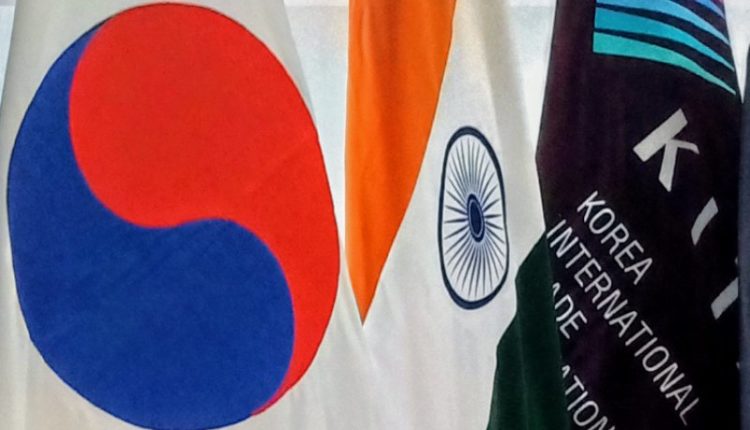NEW DELHI: With an eye on taking bilateral trade between India and South Korea from an existing little over $21billion to $50 billion by 2030, the Korean apex trade organization Korea International Trade Association (KITA) has coined a 3-point formula for making the dream come true.
The researchers at KITA have zeroed in on three main areas of cooperation for fostering a stronger economic partnership between the two countries.
First, widen the scope of the Comprehensive Economic Partnership Agreement (CEPA) to help exporters. Second, promote investment in new industries like ICT, Energy, and Bio-health.
And third, make India a global manufacturing hub and strengthen Global Value Chain (GVC).
According to Ui-Yoon Jo, Researcher, International Institute of Trade, KITA, the Korean President Moon Jae-in, and Indian Prime Minister Narendra Modi had announced in July 2018 to take the bilateral trade to $50 billion by 2030.
But to achieve this goal, CEPA improvements would play an important role, he said adding that currently, the Korea-India CEPA utilization rate is lower than other Korea’s FTA utilization rates.
As of 2018, Korea-India CEPA utilization rate is 70.9%. This falls short of Chile, the EU, the United States, and Canada and so on.
“Currently, South Korea and India are in negotiations for improvement. Companies from which we asked for the feedback responded that increasing the concession level and easing complicated rules of origin will be important for the CEPA revision. We need to consider Companies’ voices for better improvement,” suggested the research.
Korea-India trade surpassed $20 billion in 2011 thanks to CEPA which was signed in 2009. Afterward, trade declined and then shifted to an increase from 2017. It surpassed $20 billion again in 2017, and also surpassed $21 billion in 2018. Mutual dependence on trade is increasing.
The second area is the introduction of New Industry:
While referring to the World Economic Forum’s global competitiveness ranking released in October 2019, KITA research said that the competitiveness of Korea and India was highly ranked in innovation capabilities which is crucial for new industry development.
“Efforts are steadily being made for cooperation in new industries between the two countries. The two countries’ joint R&D programs are underway in the ICT, healthcare and energy sectors, and the South Korean government has established a startup support center in Gurgaon,” it stated.
As an example of cooperation between Korean and India in the ICT field, there is a start-up called ThePlang that entered the Indian market by launching educational applications for children.
With the success of the application “Odinga” and “Odinga Codinga,” the third educational service is being prepared for release. ThePlang is working with 80 schools in India. Also, this company will expand its business offline with Indian companies.
The Third Area is regarding manufacturing and GVC:
South Korea’s direct investment in India surged to $515 million in 2017. The year 2018 marked a 104.4 percent increase compared to 2017. The recent increase in direct investment stems from manufacturing. In 2018, direct investment in the manufacturing sector reached $930 million, up to $500 million from a year earlier. Samsung and Kia completed the construction of their plants in India recently.
The KITA research stated that because of “Make In India”, the Value-chain between Korea and India is being changed. India’s imports of intermediate goods and exports of final goods are on the rise. As India has become a global production base for final goods, Korea’s exports of intermediate goods to India are also increasing.
“A South Korean company that had set up factories in China in the past is currently setting up factories in India. Direct investment in India has increased significantly. Production in India is increasing through cooperation between the two countries. Both countries need to respond to this change of value chain.”
About KITA:
Established in 1946 with the objective of advancing the Korean economy through trade, KITA is currently the largest business organization in Korea with over 70,000 member companies. It has 13 domestic offices and 11 overseas branches in major cities across the world. Representing the interests of Korea’s global traders, KITA serves a diverse range of roles including
providing hands-on support to trade companies, drawing trade cooperation from the private sector, formulating new trade strategies, nurturing trade professionals and building trade infrastructure.
Please read: Indian consumers now prefer Korean brands over Japanese: Amitabh Kant, CEO, NITI Aayog



